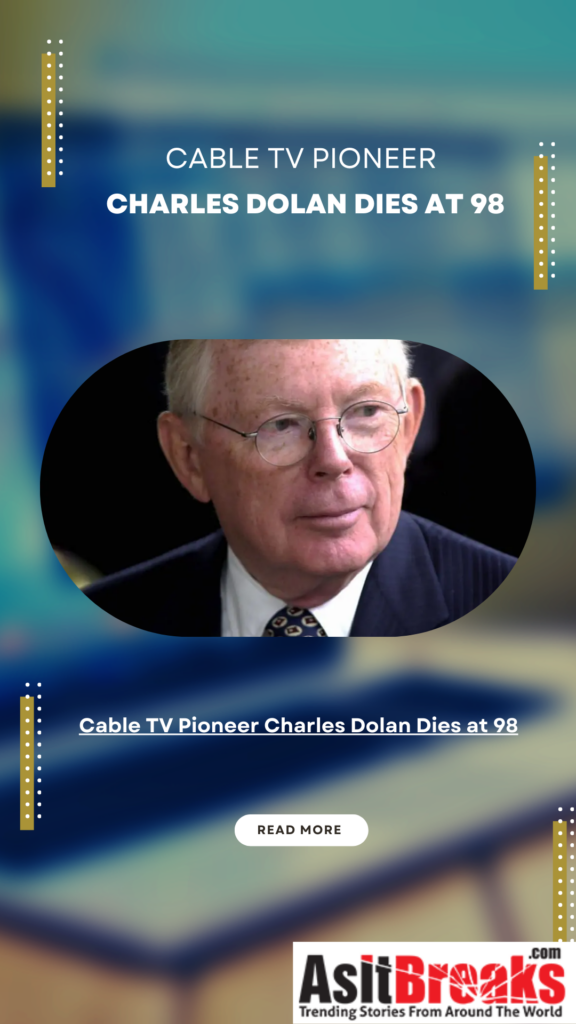NEW YORK (AP) — Charles F. Dolan, the media visionary who founded HBO and Cablevision and helped transform cable television into a cultural and economic powerhouse, died Saturday. He was 98. His family confirmed his death but did not specify the location.
Dolan’s career began in 1973 when he launched Cablevision Systems Corporation with 1,500 customers on Long Island. By 2015, when he sold the company to Altice for $17.7 billion, it served three million households in the New York area with cable, internet, and digital telephone services.
His innovations included creating the first urban cable network through Manhattan Cable, launching commercial-free movies on HBO in 1972, and establishing 24-hour local news with News 12 Long Island. The Dolan family empire grew to include Madison Square Garden, the New York Knicks, Radio City Music Hall, and numerous cable networks.
“We’re not wedded to cable,” Dolan said in a 1988 interview. “As soon as it’s obsolete, junk it; let’s go on to the next one.” This forward-thinking approach characterized his five-decade career.
Known as a tenacious competitor and skilled negotiator, Dolan built a media empire that Forbes valued at $5.2 billion in 2020. Under his leadership, the family acquired Madison Square Garden in 1994 and expanded into sports broadcasting through MSG Network and SportsChannel.
Born in Cleveland Heights, Ohio, in 1926, Dolan began by editing sports newsreels before moving to New York. Despite setbacks, including losing Sterling Manhattan Cable to Time Inc., he consistently rebounded, pioneering new ventures in media and entertainment.
The family maintains control of AMC Networks and various entertainment venues, including the Beacon Theater in New York and the Wang Theater in Boston. In 2020, the Dolans reacquired a majority stake in Newsday after the Altice sale.
Dolan was preceded in death by his wife of 73 years, Helen Ann Dolan, who died in 2023. His philanthropic work included founding the Lustgarten Foundation for Pancreatic Cancer Research in 1998, honoring a colleague who died from the disease.
“His vision and determination fundamentally changed how Americans consume media,” said media analyst Robert Klein. “From HBO to regional sports networks, his impact on the industry cannot be overstated.”


